By Jane Anyango
Kampala, Uganda — Saturday June 21, 2025
Day three of the 2025 CHUSS Graduate Symposium at Makerere University opened with a sobering and personal reflection and plenary session on the theme: Mental health Challenges in Graduate Studies:Handling the Elephant in the Room
“PhD Should Not Be a Death Sentence: Dr. Isaac Tibasiima Lays Bare the Mental Toll of Graduate Studies”
In an emotional and candid address, Dr. Isaac Tibasiima, a lecturer, a graduate programmes coordinator and recently graduated PhD candidate at Makerere University’s Department of Literature, lifted the veil on the often-overlooked psychological burden carried by PhD students and early-career academics.
Drawing from his own doctoral journey, Dr. Tibasiima described the PhD experience as one riddled with “more demons than we can ever imagine,” challenging the assumption that academic excellence insulates scholars from mental health crises.
“We imagine we are immune because of our education, our status, and position in society. So we hide under the lies about us and slowly we sink into a mire,” he said.
The address highlighted a range of mental health stressors: crushing academic workloads, strained personal relationships, unrelenting pressure to publish and teach, and institutional demands to attract funding. Tibasiima likened the system to a production line that reduces human beings to machines.
“I must push myself whether I am well or unwell. I am happy to have been productive, but at what cost?” he asked rhetorically.
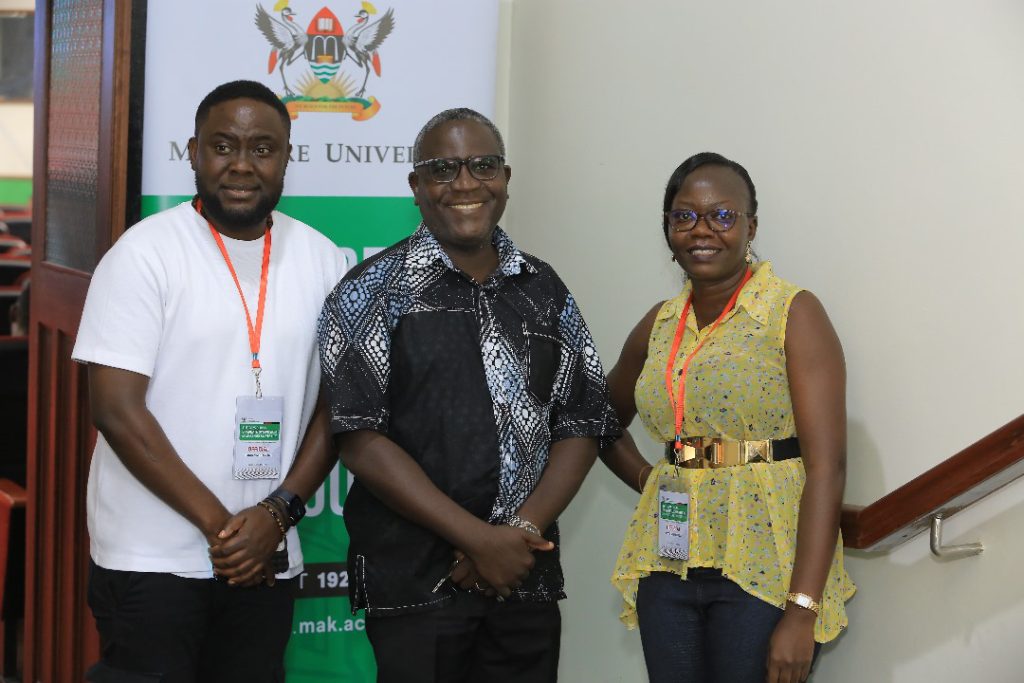
He also shared deeply personal episodes, including losing colleagues and mentors mid-way through his studies, battling post-submission depression, and confronting suicidal thoughts. Tibasiima spoke of developing high blood pressure after submitting his thesis — a moment that should have marked relief, but instead plunged him into uncertainty and emotional paralysis.
Citing the loss of Dr. Catherine Anena during the COVID-19 pandemic as a particularly devastating moment, Tibasiima stressed how grief and academic pressure can compound to devastating effect.
“Some people commit suicide, especially in the PhDs. Some people just get so anxious and cave into these anxieties,” he warned, noting that the culture of silence in academia often prevents open conversations about such issues.
He criticized the lack of adequate mental health support in academic institutions and urged universities to acknowledge and address the psychological burden of graduate education.
“A PhD should not be a do-or-die thing. We need you to finish — but more importantly, we need you alive,” he said, to strong applause.
Dr. Tibasiima called on students and academics alike to cultivate support networks, seek professional counseling, and resist isolation. He emphasized that seeking mental health support is not a sign of weakness but of strength and self-awareness.
“Before things go out of hand, talk to someone. Seeking professional help does not mean you have run mad. It means you care about yourself.”
Tibasiima’s personal reflection which preceded academic presentations by Dr Allen Asimwe, Dr. Linda Nakalawa,and Dr. Roscoe Kasujja set a powerful tone for a day focused on well-being, reflection, and community.
As mental health emerges as a critical concern in higher education globally, Tibasiima’s testimony stands as both a warning and a beacon advocating for institutional reform and cultural change within academic spaces.
“We are not machines. We are human beings. And because we are human, we need help, connection, and the freedom to be vulnerable,” he concluded.
Tibasiima ended with a poignant reminder to all graduate students navigating academic turbulence: “May the force go with you.”
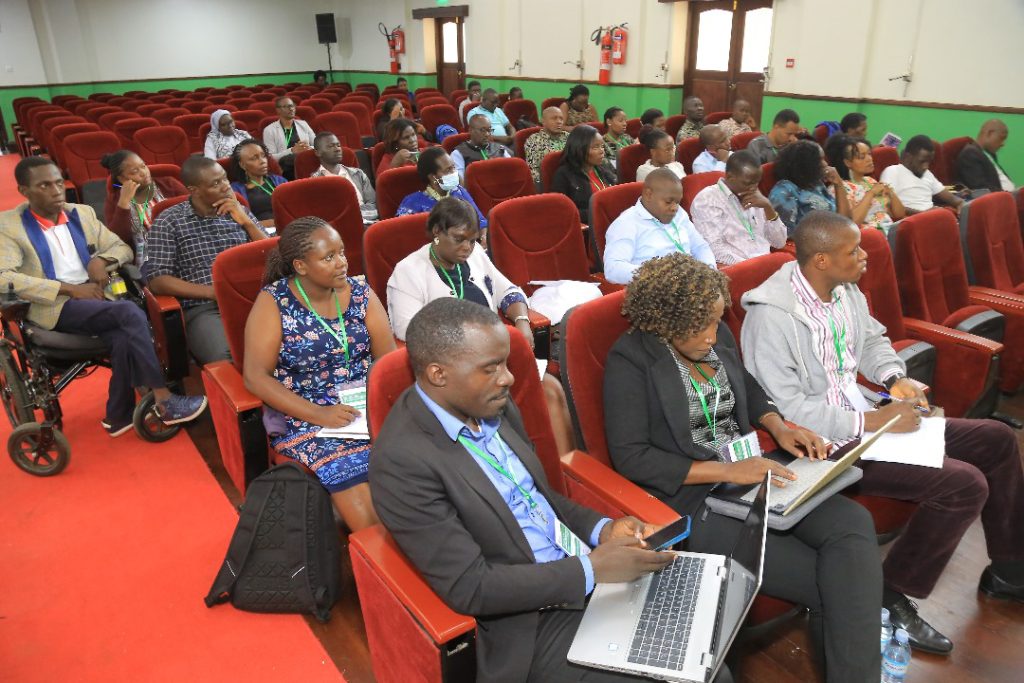
Scholars and mental health advocates, took center stage to address some of the most overlooked but damaging factors in graduate student well-being including student-supervisor relationship,institutional demands, emotional health, mindset and communication.
Dr. Asiimwe shed light on the toxic dynamics that often characterize supervision in graduate programs — a key driver of stress, depression, anxiety, and even attrition among students.
“Research shows that up to 50% of graduate students report anxiety or depression, and these are often linked to strained supervision relationships,” she said. “If we are to foster healthy academic environments, we must be intentional about how supervision is handled.”
Unhealthy Supervision Styles and the Call for Reform
Dr. Asiimwe addressed the detrimental impact of unhealthy supervision styles on graduate students’ mental health and academic progress, emphasizing the urgent need for structural reform. She identified several damaging supervisory behaviors that undermine students’ confidence and well-being. Among the most harmful is authoritarianism, where supervisors excessively control students’ work instead of guiding their intellectual growth. “Supervision is not control,” she stressed. “It’s about mentoring and facilitating intellectual growth.” Another critical issue is public shaming, particularly during presentations, where students are humiliated in front of peers. Such acts, she warned, do not build resilience but instead “break students.”
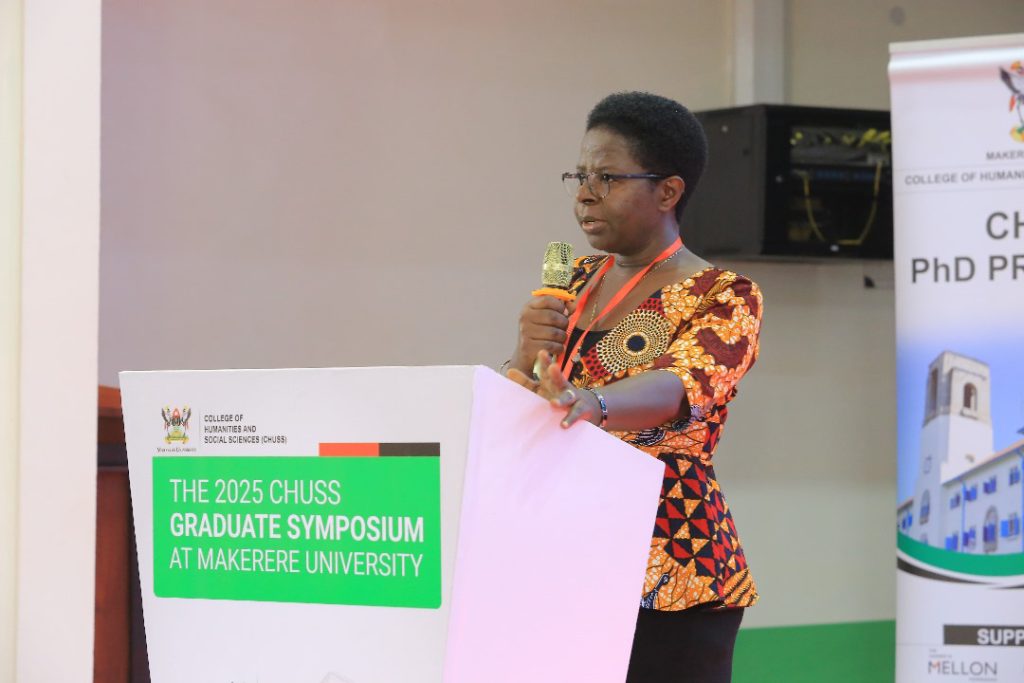
Neglect and absenteeism were highlighted as especially harmful, with some supervisors taking weeks or even months to return drafts. This leads to academic delays and mounting anxiety, as students begin to internalize the silence and blame themselves. In some cases, demoralizing remarks by supervisors can trigger or worsen imposter syndrome, causing deep self-doubt. Comments like, “You don’t belong here,” can lead to emotional breakdowns. Dr. Asiimwe also noted the power imbalance in supervisor-student relationships, which often deters students from reporting abusive or negligent behavior due to fear of retaliation or academic sabotage. “This silence is deadly for mental health,” she warned. She further criticized unrealistic expectations, such as demands to complete a chapter within an unreasonable timeframe, which drive burnout. Additionally, the lack of expertise among some assigned supervisors leaves students feeling directionless and unsupported in their research journey.
To address these systemic issues, Dr. Asiimwe proposed a series of reformative strategies aimed at building healthier supervision structures. First, she called for clear expectations to be established early in the supervision process, including timelines, communication norms, and feedback procedures — ideally documented in a written agreement. She also emphasized the importance of constructive feedback, urging supervisors to focus on guidance that empowers rather than belittles. Regular check-ins, particularly when students go silent, are essential. “A simple ‘Are you okay?’ can open up conversations that save lives,” she noted.
Respecting personal boundaries is also crucial; supervisors should not expect round-the-clock availability, and students must likewise honor supervisors’ communication preferences. Dr. Asiimwe advocated for greater emotional sensitivity, encouraging supervisors to recognize signs of distress — such as absenteeism and missed deadlines — and refer students to mental health support services when needed. She also highlighted the need for flexibility with deadlines, especially for international students, working parents, or those facing personal crises. Finally, she called on universities to undertake institutional reform by involving students in the supervisor selection process, stressing that a poor match between student and supervisor can derail an entire academic career.
Responsibility on Both Sides
Dr. Asiimwe made it clear that students also have a role to play in maintaining a healthy relationship. Open communication, timely responses to feedback, and respect for boundaries are crucial. “If you’re struggling to meet a milestone, let your supervisor know early. Silence creates more tension.”
She urged students to seek help when needed and to build strong peer and faculty support networks. “As Dr. Tibasiima said earlier, you are not alone. Use the systems around you. Mental health is not just your responsibility; it is everyone’s responsibility.”
Dr. Asiimwe concluded her session with a powerful reminder that graduate supervision must be rooted in mutual respect, open communication, empathy, and accountability.
“We are mentoring human beings, not robots. If we want them to thrive intellectually, we must first ensure they are well emotionally.”
Budget for Your Emotions: Dr. Linda Nakalawa Urges PhD Students to Prioritize Emotional health for Success and Survival
In an unusually personal and moving address, Dr. Linda Nakalawa Kolabako a Psychologist captivated attendees by stepping away from the podium — both literally and figuratively — to discuss what she called “the most overlooked currency in the PhD journey”: emotional energy.
Nakalawa offered graduate students a radical, soul-searching challenge: to stop treating emotional wellness as an afterthought, and instead treat it as a critical resource—as essential as time or finances.
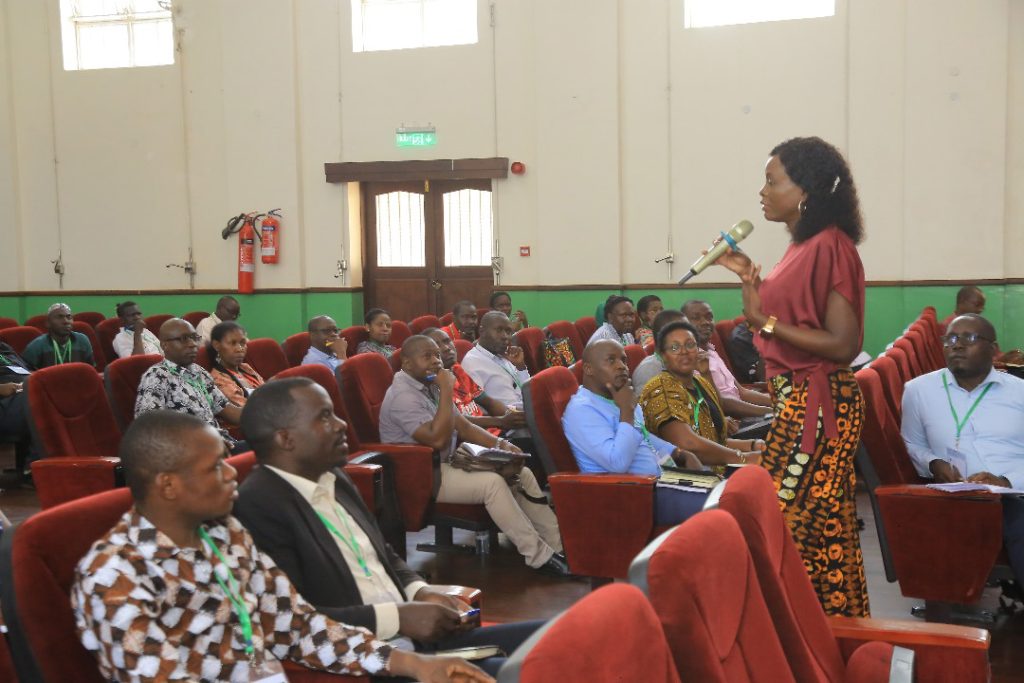
“They always tell us to budget for our time,” Dr. Nakalawa said. “But how often are we told to budget for our emotions? If you do not feel well emotionally, you will not be well physically. Your body will tell you.”
Setting the tone with a guided breathing exercise, Dr. Nakalawa gently led participants into a mindfulness moment — emphasizing that even small acts of self-awareness can begin to ease stress and restore inner balance.
“Most of us took a breath like it was an anxious one. We don’t realize how long we’ve been holding tension until we let go,” she said, demonstrating what she called “belly breathing” — a tool for physiological relief and emotional grounding.
This, she explained, was a metaphor for her broader argument: that students must learn to become aware of the emotional costs of the PhD journey — and then manage those costs intentionally.
Unpacking Stress: It’s Not Just the Situation — It’s the Perception
Dr. Nakalawa highlighted a crucial but often-misunderstood truth: stress does not simply arise from challenging circumstances, but from how we perceive our ability to cope with those challenges.
“The same boiling water that hardens an egg will melt butter,” she said. “Our responses to stress depend on the narratives and voices in our heads—our mindset.”
Drawing from her PhD research on youth empowerment and mindset, she described the African socio-cultural tendency to internalize communal expectations and intergenerational voices — from uncles to religious leaders to clan elders.
“We walk around with voices in our heads. Not just the ones that land people in Butabika [psychiatric hospital] — we all have them,” she explained. “These voices form our mindset — a ‘set’ of narratives — that can either encourage or sabotage us.”
Debunking the Myths: “It Can Be Done”
Dr. Nakalawa directly confronted some of the most discouraging narratives that often plague graduate students, such as the common belief that “you can’t finish a PhD at Makerere in three years.”
“I finished in 39 months — and that included an 8-month delay due to COVID-19,” she said. “It can be done. If you’re on month 42, pick yourself up. It’s not too late.”
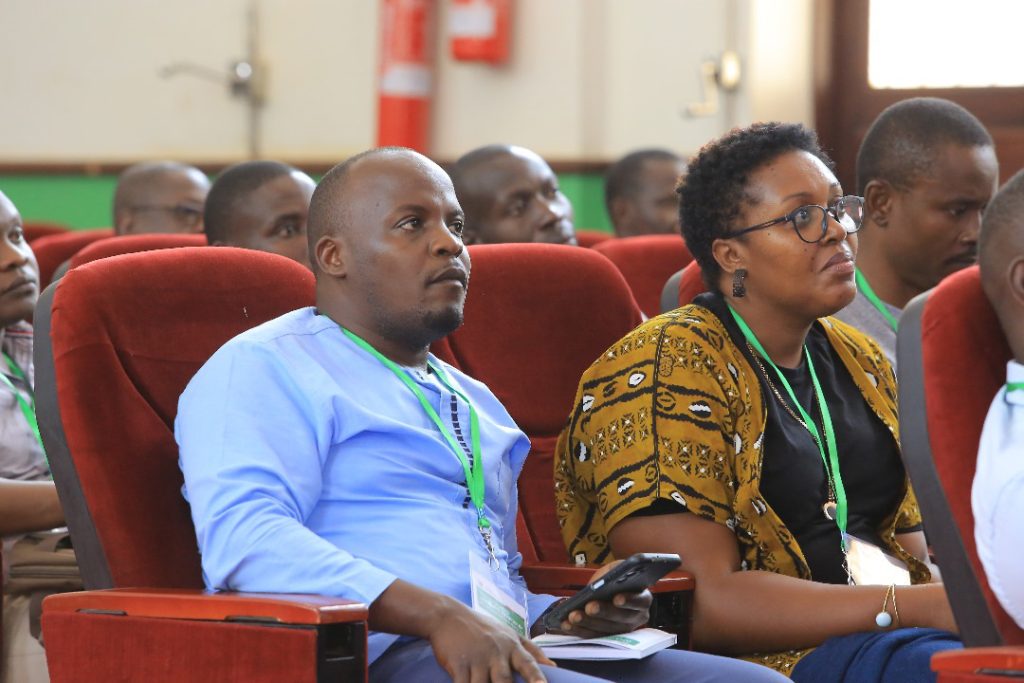
She also critiqued the cynical belief that “a PhD is 70% politics,” urging students to resist defaulting to adversarial thinking, especially with supervisors.
“When you believe that, you start fighting battles that don’t even exist,” she warned.
Surround Yourself With the Right Voices
One of the most powerful points of her talk was her call for emotional boundaries — particularly in terms of the people students allow into their lives.
“During COVID, I started blocking people on WhatsApp. If you’re always sharing awful news, I won’t allow you in my emotional space,” she said. “You are not a bad person for cutting off toxic voices.”
She urged students to surround themselves with people who “speak life and light” into them and to protect their energy from unnecessary drama, distractions, or guilt-inducing obligations.
“Not every battle is worth fighting. Not every event must be attended. You’re a good person even if you don’t show up to everything.”
Emotional Budgeting: What It Really Means
Emotional budgeting, Dr. Nakalawa explained, is about conscious decision-making. From limiting social media use, to avoiding late-night stressors like TikTok, to skipping conversations that drain rather than build — every choice matters.
“Everything you engage in leaves an emotional echo,” she warned. “Before you go to sleep, don’t feed your mind with things that will keep playing in your head.”
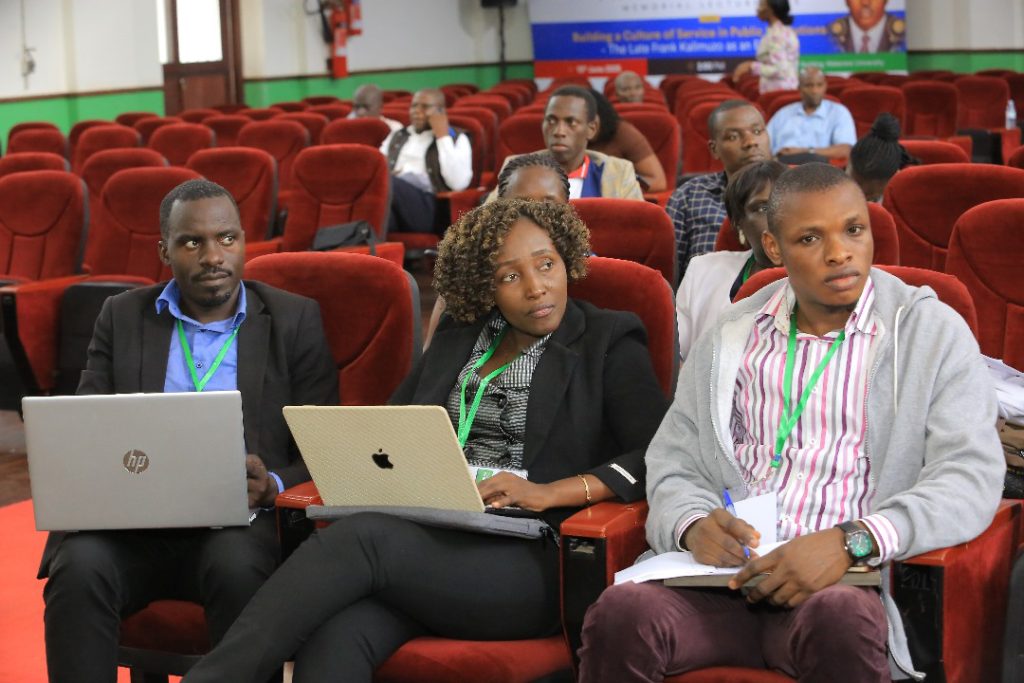
This awareness, she said, helped her evolve from being argumentative at home to someone perceived as calmer and more focused. “By the time I finished my PhD, people thought I had changed. And I had. I’d learned to conserve my emotional energy.”
From Trauma to Growth: Thriving Beyond Survival
Addressing the mental toll of the PhD process, Dr. Nakalawa acknowledged that it can feel “traumatizing,” but emphasized that adversity can lead to profound personal growth.
“There’s post-traumatic disorder, yes. But there’s also post-traumatic growth,” she said. “The PhD is not just a dissertation — it’s a process of transformation.”
She closed by reminding students that they are more than their academic documents.
“When you finish, what remains is not just a monograph. It’s the thinking, the skills, the confidence. I now know I can do research by myself. That’s how I’m thriving.”
With warmth, vulnerability, and conviction, Dr. Nakalawa left students not only with coping strategies but with renewed belief in themselves.
“You will survive. You can grow. And yes, you will thrive.”
Dr. Roscoe Kasujja Urges PhD Students to Prioritize Mental Health: “It’s a Research Skill Too”
In a heartfelt and sobering address, Dr. Roscoe Kasujja, Head of the Department of Mental Health at Makerere University, delivered a powerful message to graduate students and supervisors alike: Mental health is not a side concern — it is central to academic success and personal well-being.
“Mental health is a research skill,” Dr. Kasujja said. “It is personal. It is complex. And it must be developed intentionally if you are to survive and thrive in graduate school.”
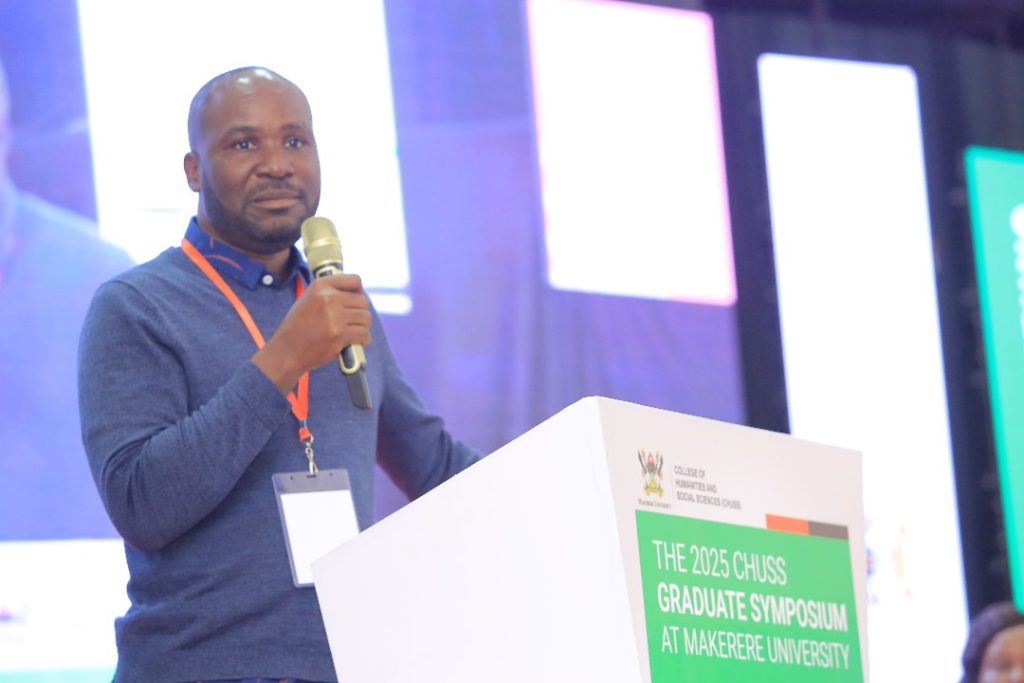
Speaking both as a researcher and as someone who has personally walked the PhD journey, Dr. Kasujja admitted that agreeing to speak at the symposium had initially made him uncomfortable — torn between representing the mental health field and being a symbol of the academic establishment that students often criticize.
“I know what it’s like to stay up late in the library, to battle guilt, and to feel crushed under the weight of institutional flaws,” he said. “But I also know the beauty of choosing to walk through that storm and come out stronger.”
A Crisis in Plain Sight: Mental Illness Among Graduate Students
Citing global studies, Dr. Kasujja warned that 40% of graduate students experience depression, anxiety, and other psychological challenges — numbers that often go unnoticed beneath the surface of academic ambition.
“You are not alone,” he told the room. “But this silence, this perfectionist culture in academia, is eating us alive.”
He urged students and faculty to view emotional regulation as a critical competency — not unlike data analysis or proposal writing. “You can be the most brilliant, but can you deal with pressure? Can you breathe, perform, and take breaks when needed?”
Set Boundaries. Communicate Clearly. Ask for Help.
Throughout his speech, Dr. Kasujja emphasized three pillars for maintaining mental well-being during graduate studies: boundaries, assertive communication, and help-seeking.
“We take on too much. We blame too much. And we forget ourselves,” he warned. “Learn to say no. Learn to rest. Learn to step back.”
He also cautioned against the passive reliance on supervisors, noting that students often treat delays in feedback as an excuse to halt all progress. “Your supervisor taking a week or a month should not turn you into a robot waiting to be switched back on,” he said.
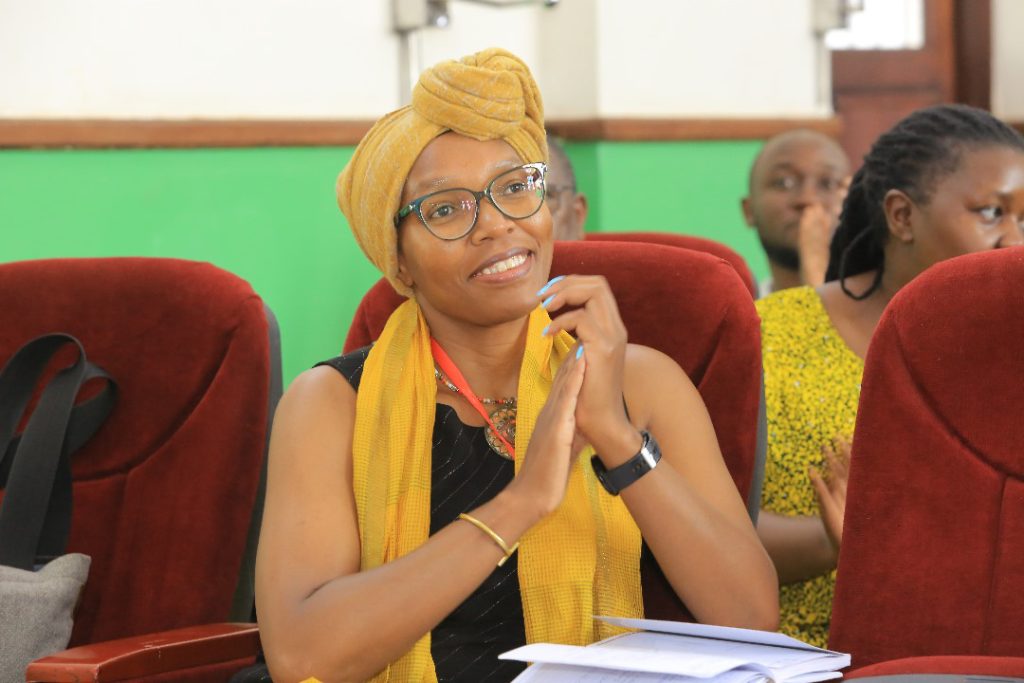
Importantly, he urged students to ask for help — a skill he says is widely underutilized in academia despite being crucial for both academic progress and mental health.
“Are you willing to say: I don’t understand this feedback? I’m tired? I’m lost?” he asked. “The moment you verbalize your struggle is the moment you start to get unstuck.”
Perfectionism Is the Enemy
In one of the talk’s most striking moments, Dr. Kasujja challenged the academic culture of perfectionism, which he called “toxic and paralyzing.”
“Everyone thinks their research must be flawless. That they must never make a mistake. That’s not how this works. You will fail at some things — and that’s part of the process,” he said.
He advised students to embrace imperfection as part of the learning curve and not to define their worth by the number of drafts or corrections.
Mental Health Is Personal — And Universal
Dr. Kasujja also opened up about a deeply personal moment: a recent text message from his 16-year-old nephew asking, “Are you happy?” The question prompted an unexpected reflection on his own emotional state — and the expectations placed on young people.
“He told me, ‘Sometimes I’m breaking down and they don’t know. I want to come where it’s quiet.’ That message taught me something — how many of us don’t have a quiet place, or someone to confide in?”
That vulnerability, he said, cuts across age and title — from overwhelmed teenagers to seasoned supervisors. And it’s a reminder that academic roles must not eclipse human identity.
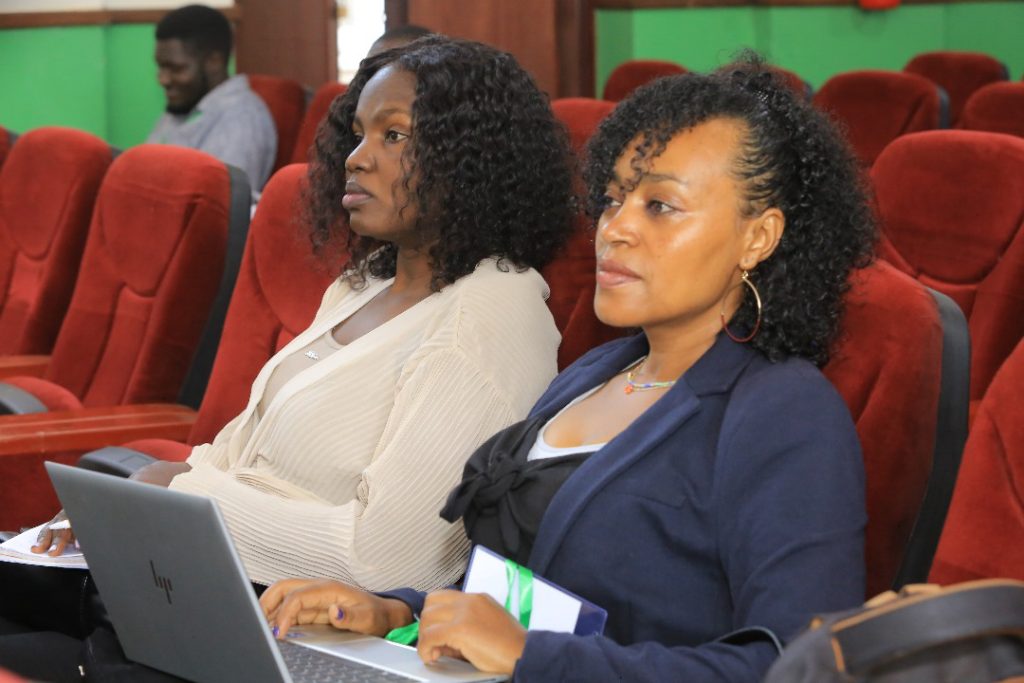
“I’m a brother, an uncle, a researcher, a friend. I want to breathe more — to be human. You can still be an amazing mother, brother, or advisor while doing a PhD.”
The Central Question: Will You Bet on Yourself?
Dr. Kasujja closed his speech with a challenge to all present — students, supervisors, and administrators — to reclaim control of their lives, not by rejecting hardship, but by embracing emotional truth.
“You can feel joy and sadness at the same time. That is life,” he said. “The question is — are you willing to bet on yourself to thrive?”
As applause broke out, the message was clear: in the grueling pursuit of academic excellence, mental health is not a luxury — it is essential survival gear.

